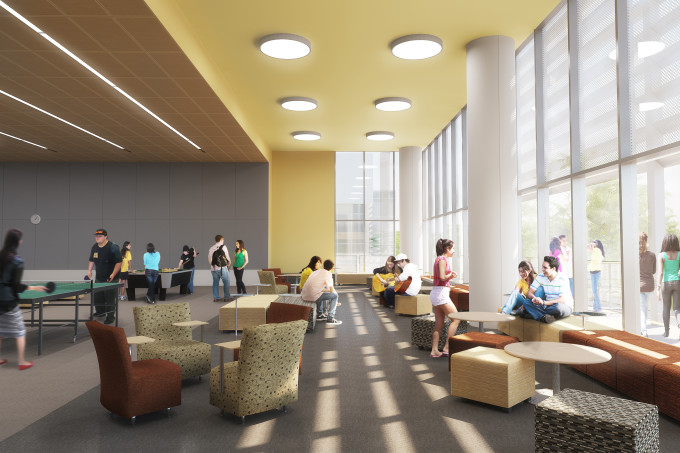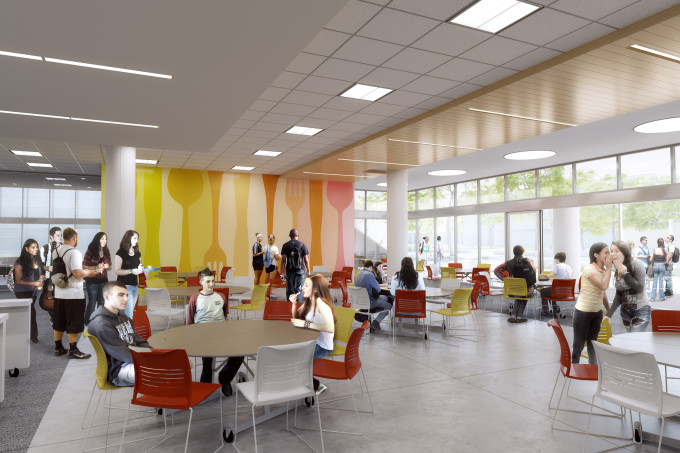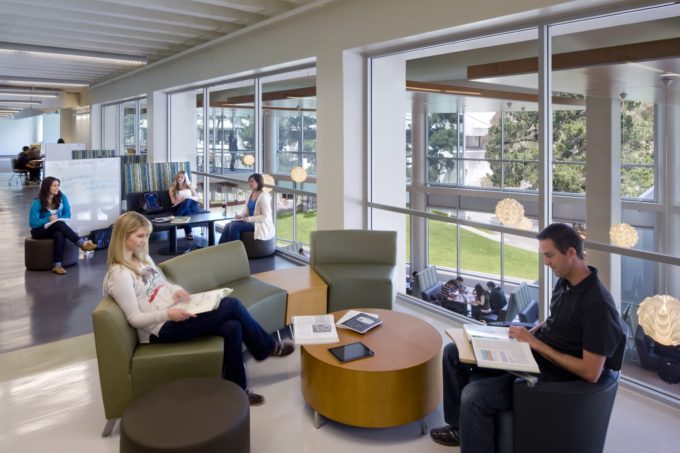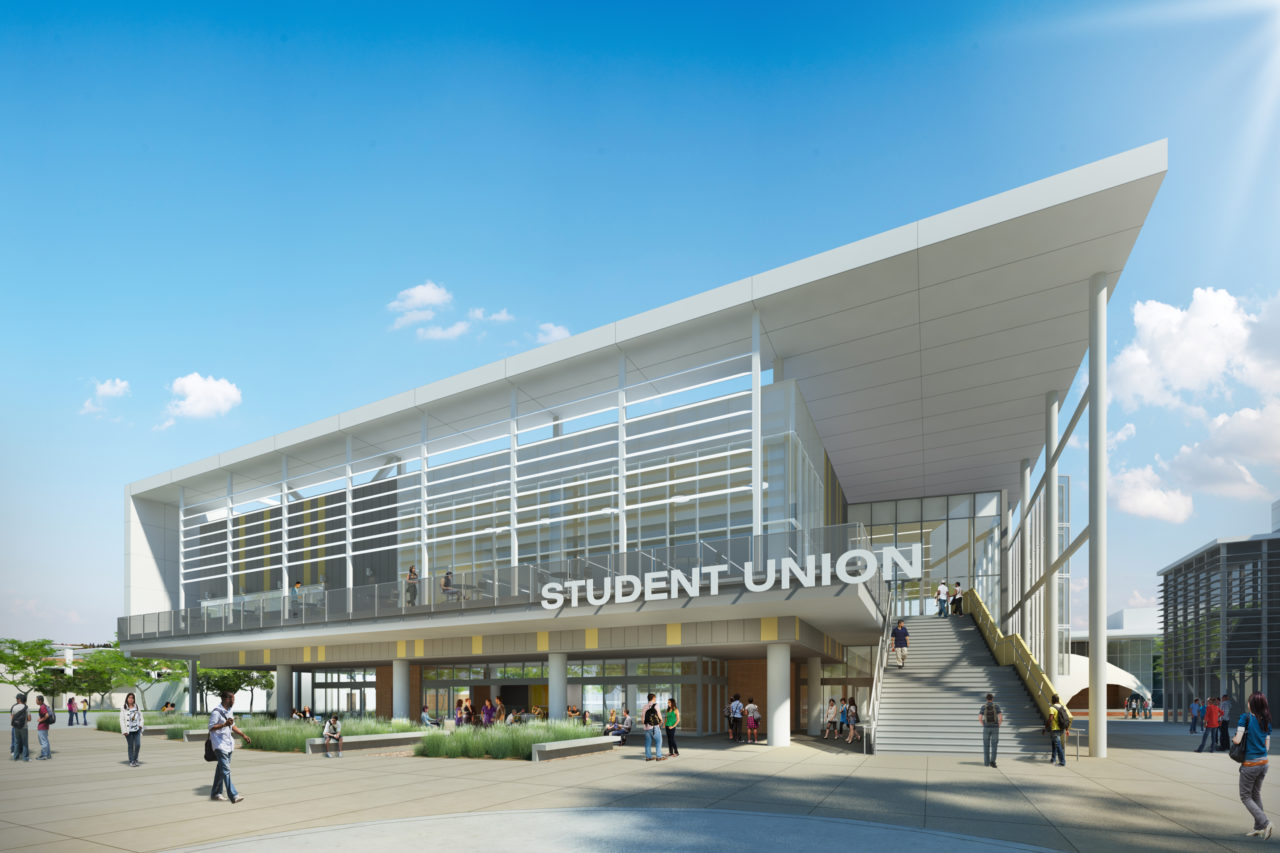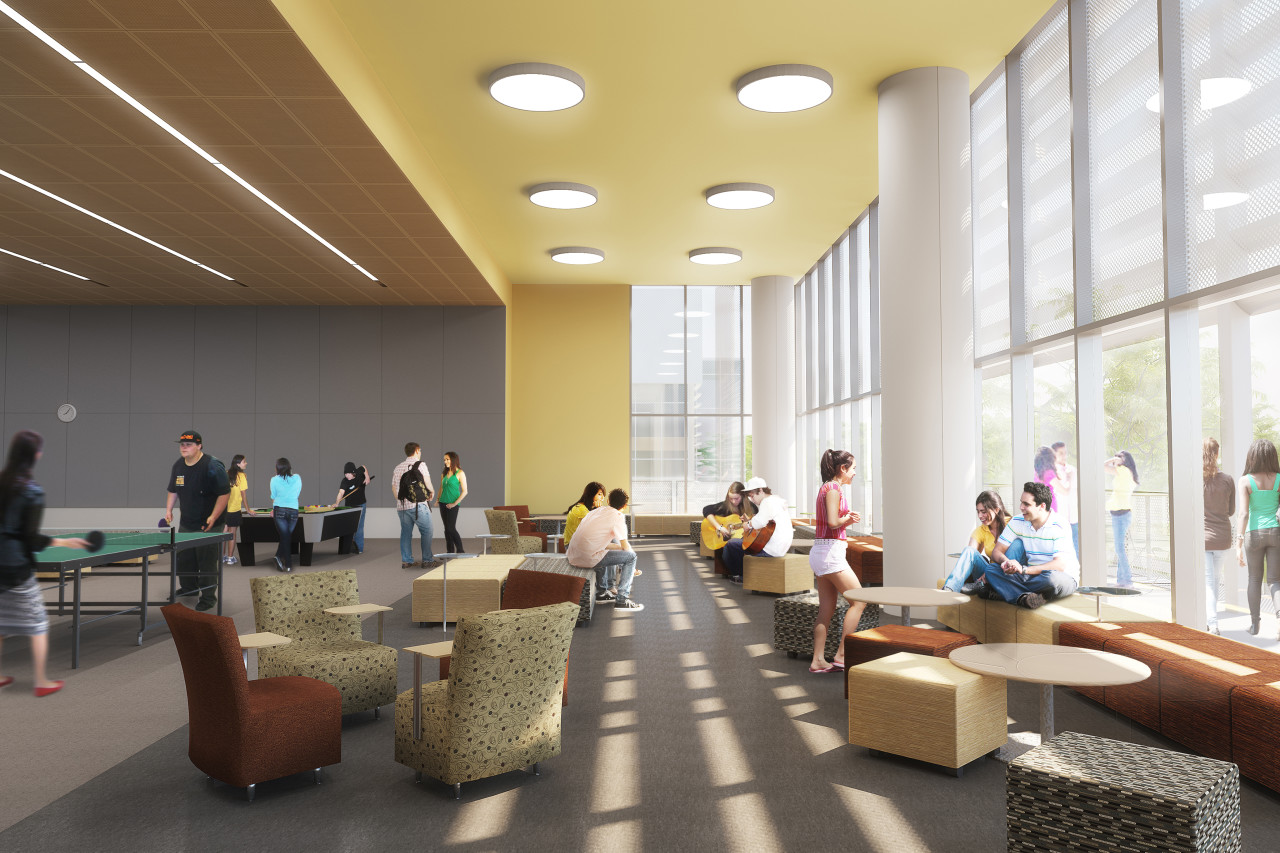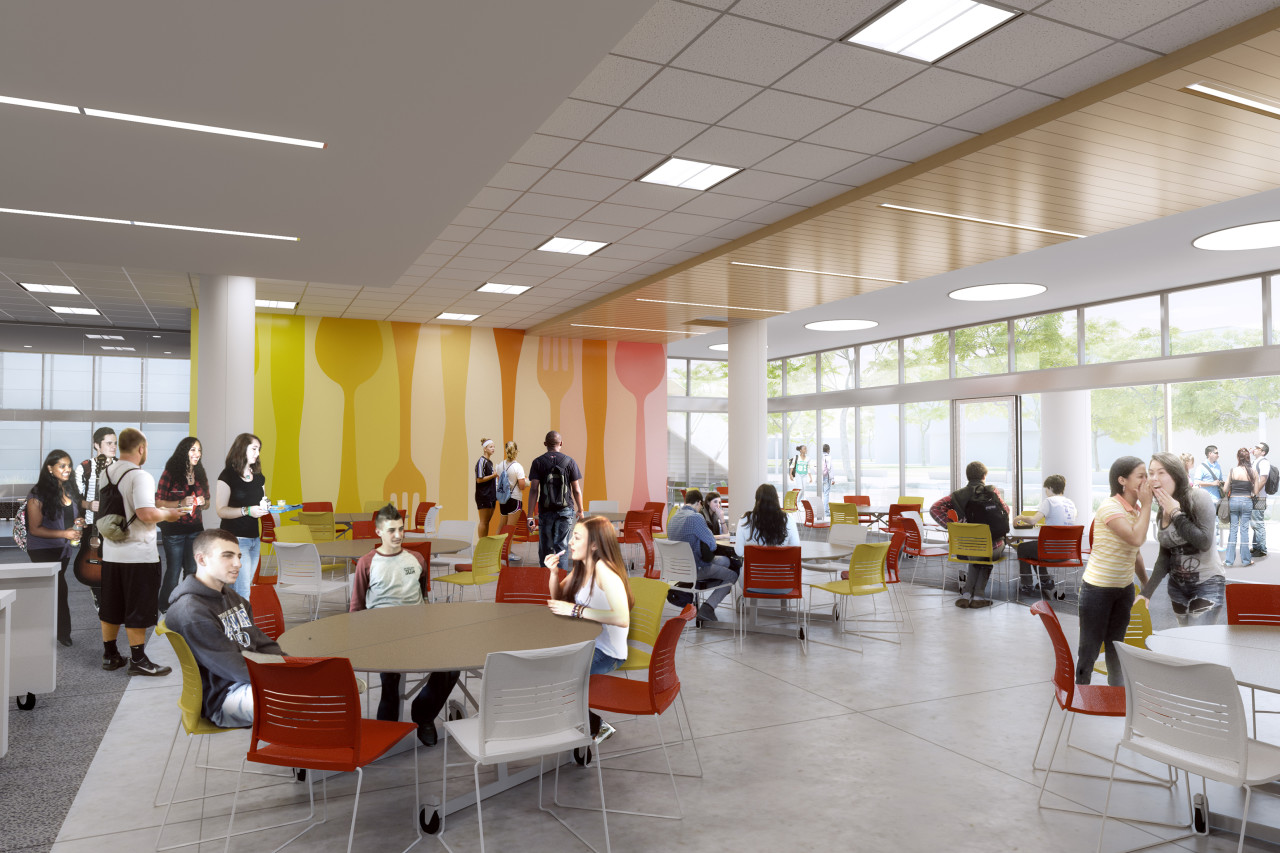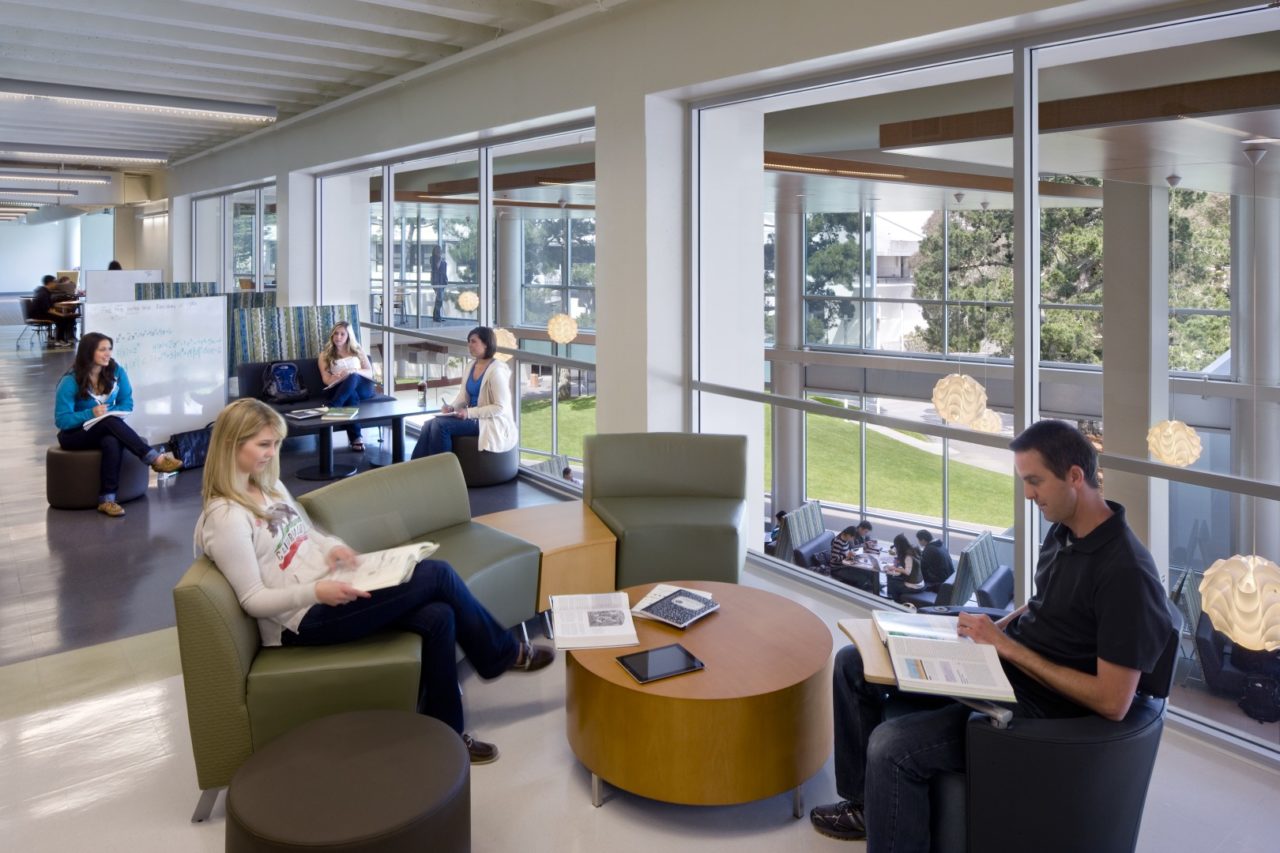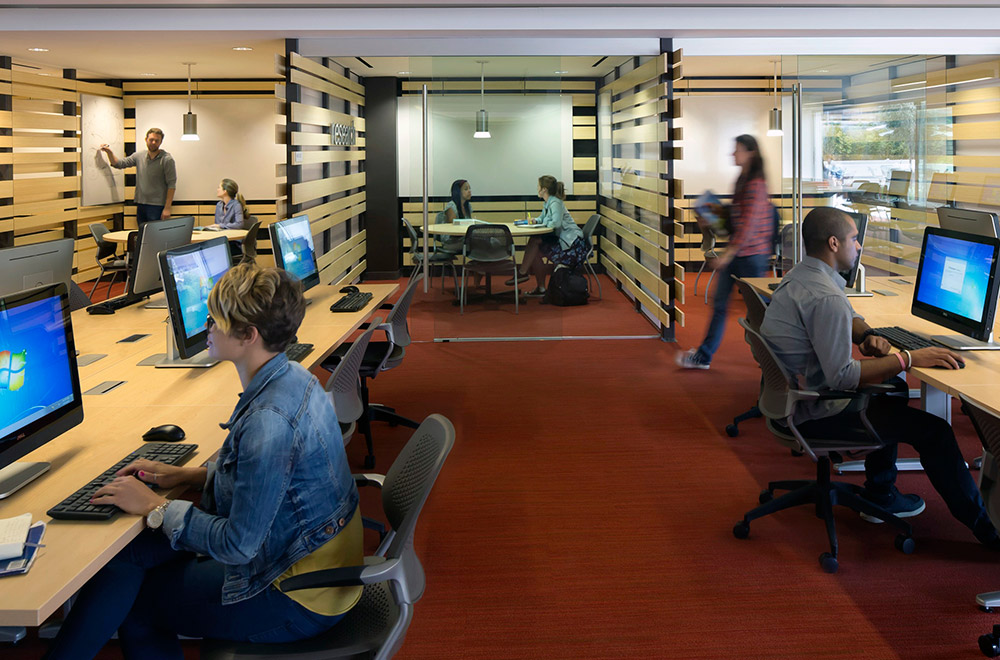When first-year students arrive at college, they’re welcomed warmly at residence halls and supported through student orientation. But what about newcomers who live off-campus? How can colleges and universities better support commuter students as they become acclimated to campus life?
Through deliberate campus renovations of student unions, libraries, and spaces used for multi-use and extracurricular programs, you can build a support system for your commuter students and better encourage their involvement on days they attend classes and even entice them to return to campus on weekends.
Why Commuter Students Need More Support
Commuting to class isn’t just a hassle for some students who live off campus—it could negatively impact their academic lives. Research published in the Journal of International Education Research examined the relationship between commuting distance and factors like graduation rate, and found that commuter students are less likely to complete their degrees than students who live on campus. This may be because commuter students struggle to develop a commitment to their universities and their studies, and have more demands on their time.
When commuter students don’t get the support they need on campus, it could lead to:
- Less engagement with peers who live on-campus.
- Difficulty understanding some of the material due to a lack of peer and instructor support outside of class.
- Tardiness and unexpected absences.
- Difficulty scheduling and participating in group projects.
- Avoiding morning or mid-afternoon classes due to heavy traffic and long commute times.
Encouraging commuter student engagement through deliberate design will inspire them to spend more time on campus, support them in their academic efforts and, in turn, may help them earn higher grades.
How Deliberate Design of Social Spaces Promotes Commuter Student Involvement
College campus activities wind down on Friday afternoons once classes are done for the week. Lack of weekend activity on campus means that commuter students are more likely to stay at home until classes start again on Monday morning. One of the best ways to entice your commuter students to spend more time on campus on Saturdays and Sundays, and prevent them from missing out on valuable interactions and social activities with their peers, is to renovate your student union and other community spaces with them in mind.
Renovating a multipurpose hall with flexible features and an attached cafe or food court can provide both live-in and commuter students with what they need to plan their own extracurricular activities on weekends and get more involved in campus life. For example, in a large communal room in a student union, students can host Saturday afternoon ping-pong games, book clubs, or video game tournaments. Such events attract a diverse range of students, including commuter students, to the space on weekends. Furnishings that move easily, such as modular sofas and rolling tables and chairs, can accommodate small or large groups of students and allow them to customize the space to fit their needs.
Another way to promote socialization in commuter students is to provide amenities that are open to all, rather than only those who live on campus. For instance, a dining commons is a great social activator but is used more by students on a meal plan. Planning for retail food in addition to a meal plan with a good point exchange system gives resident and non-resident students a good place to engage.
Cafes and dining areas in student unions offer outlets for commuter students to make new friends or discuss projects with their peers. They also encourage students to stay in the space rather than interrupt their activities to grab a snack or lunch elsewhere. Commuter student success is exactly what administrators at Los Angeles Harbor College had in mind when they engaged HMC Architects to design a new student union. Set to open later this year, the large student union with floor to ceiling glass windows, a multipurpose lounge, and dining area will be the center for various activities on campus. Through deliberate design, residents and commuter students will be able to enjoy spaces they can define for themselves every day of the week.
Renovated Libraries Build a Sense of Community
Libraries are so much more than book storage rooms. A well-designed library can foster more commuter student involvement on campus by offering study and social opportunities that they can’t get at a library closer to home. Renovating your library to include the latest technology will give your students better access to advanced learning tools and materials. By connecting the library to a student union or another type of social hub that offers weeknight and weekend events, you can give your commuter students even more reasons to stay on campus and interact with their peers.
To address student needs at the San Francisco State University J. Paul Leonard Library, we incorporated advanced telecommunications, multimedia, and book-retrieval systems. Students now work more efficiently and are able to locate the books they need with fewer issues. More group-study areas and comfortable seating were also added to encourage students to collaborate on projects. Additionally, the library now blends seamlessly into the neighboring student union building, allowing students to move easily between the different spaces.
Library renovation features can also include floor-to-ceiling glass doors and walls, which open lines of sight and increase social interaction. For Pierce College Library in Los Angeles, California, we made excellent use of walls and partitions to promote more collaboration between resident and commuter students. Whiteboards built into the walls of group-study rooms and glass partitions divide the large space without making it feel too enclosed.
Using a combination of modern technology and open-concept design, you can spur commuter students to spend more time in the campus library than at their desks at home.
Partner With an Architect to Foster Commuter Student Involvement on Your Campus
The best way to cultivate more commuter student involvement on campus is to team up with an architect design firm that understands the challenges today’s commuter students face. An experienced architect will look at your campus from a holistic perspective, considering all of the design features and details that will encourage students to spend more time on campus, even on weekends.
To learn more about fostering commuter student involvement on your campus, contact HMC’s design team. With decades of experience, our experts can help you pinpoint your needs and find the perfect renovation solutions. Or, you can email our Design Principal, James Sink, directly to find out more about the best practices for commuter student design.
